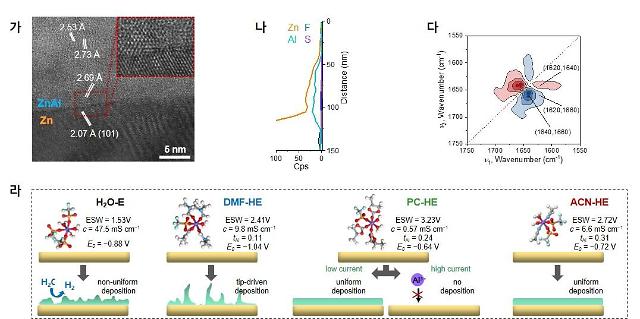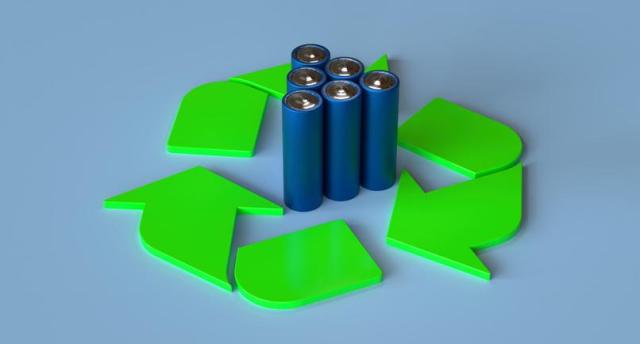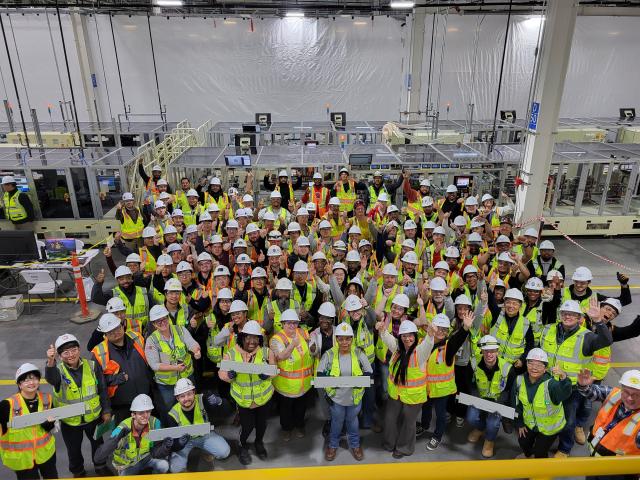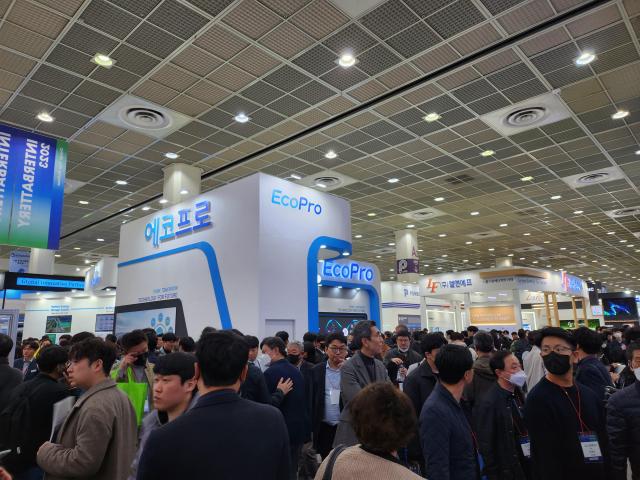
[Courtesy of Sungkyunkwan University]
Normally, high-performance batteries are mainly made of lithium and a liquid electrolyte. Because lithium is an expensive and volatile metal, all lithium-ion batteries expose the danger of combustion. However, rare metals are favored because of their high energy density. Water-based electrolytes are cheap to make and have high ion transfer rates but their drawback is hydrogen gas diffusion and layer passivation.
According to the National Research Foundation, a research team led by Sungkyunkwan University Professor Park Ho-seok has developed new materials for anodes and electrolytes. Researchers first created the aluminum-ion electrolyte and developed zinc-aluminum alloy anodes to trigger highly reversible metal alloy phase changes.
Through tests, researchers found that zinc-aluminum alloy anodes had a lifespan of more than seven thousand hours, which is much longer than that of conventional anodes made of other materials including zinc, aluminum, and other alloys. "This research has a great meaning as we were able to acquire core technology to solve issues commonly experienced by lithium-ion batteries like the stability and price while increasing the total energy density," Park said in a statement on December 6.




